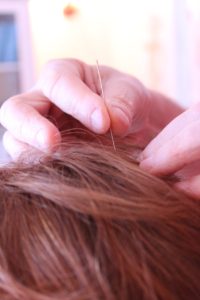Complexity of the Nervous System
The human nervous system is perhaps the most complex and elusive system in the known universe. The immensity of nerve cells surpasses the number of stars in the Milky Way galaxy with an impressive number of connections between these cells, upwards of 100 trillion! This complexity allows for much of what we consider unique to the human experience: our advanced abilities to plan, create, reflect and communicate.
It is also integral to our ability to move! The nervous system facilitates our voluntary movements, from the fine motor skills of fastening a button, playing guitar or dancing ballet, to the gross movements of crawling, running, swimming or jumping. The nervous system is also our window to experience, allowing our perception and interpretation of the five senses and our interaction and communication with the people in our lives.
Many of these abilities we take for granted, until we are immediately confronted with illness or trauma. Modern medicine, and even the specialty of neurology, is confounded by the complexity of the nervous system, such that the field cannot update textbooks quickly enough to incorporate the new discoveries. There is still so much to uncover and understand when it comes to neurological disorders. It seems imperative that our medical interventions for these conditions are both minimally invasive and clinically effective.
Chinese Medicine & Acupuncture
Chinese medicine has offered the modern world the millennia-old practice of acupuncture, a low-risk therapy that engages the body’s natural mechanisms for correcting disorder and finding equilibrium across many systems. It’s not clear how acupuncture works, but it is clinically effective, popular, and enjoyable. It benefits a variety of conditions, including musculoskeletal, neurological, gastrointestinal, reproductive, respiratory, mental/emotional and other conditions. (Check out these 10 additional benefits of acupuncture treatment.)
A more recent system of acupuncture has developed in the past 40 years that integrates traditional needling techniques and modern neuroscience. It is known as scalp acupuncture, or neuro-acupuncture. Utilizing the scalp as the exclusive needling location produces remarkable results for debilitating neurological disorders and helps both neurologists and acupuncturists better understand the nature of the nervous system and the human body as a whole. Scalp acupuncture has an incredible capacity to heal.
Neuro-acupuncture
 Neuro-acupuncture is a contemporary system of acupuncture that combines traditional Chinese needling techniques with a modern understanding of neurology and neuro-anatomy. This system uses a map of the scalp that corresponds to anatomical and functional regions of the brain, especially to regions of the cerebral cortex, the outermost layer of the brain.
Neuro-acupuncture is a contemporary system of acupuncture that combines traditional Chinese needling techniques with a modern understanding of neurology and neuro-anatomy. This system uses a map of the scalp that corresponds to anatomical and functional regions of the brain, especially to regions of the cerebral cortex, the outermost layer of the brain.
Acupuncture needles are placed in a comfortable layer of the scalp, in areas that correspond to the dysfunction being treated. The needles provide a stimulus for engaging that region of the brain and can affect various nervous system functions throughout the body, including:
- Voluntary and involuntary movement
- Sensations of pain, temperature, touch and proprioception (sense of limb or joint position)
- Hearing/comprehension, speech, vision, balance and coordination
Applications
Neuro-acupuncture is clinically shown to be a highly effective treatment for numerous acute and chronic central nervous system disorders. These include many difficult conditions for which conventional treatment options are limited, including:
- Stroke
- Multiple sclerosis
- Traumatic brain injury
- Fibromyalgia
- ADHD
- PTSD
- Parkinson’s
- Ataxia
- Chronic fatigue syndrome
Neuro-acupuncture can even be helpful for symptoms of unknown origin. Much like other modalities of Chinese medicine, the treatment is based on the particular symptom of the individual and their constitution, rather than the standard name of the disease.
To be most clinically effective, regular treatments are necessary, often beginning with twice per week. As improvements stabilize between treatments, the interval can be extended to once per week, to every 10 days, and then to two weeks. Once improvements have fully stabilized, patients can return for treatment on an as-needed or monthly basis. Even chronic and degenerative neurological conditions have been shown to be responsive to this therapeutic system.
Kalle Skurla, LAc is a Licensed Acupuncturist and graduate of The National College of Natural Medicine. She helps her patients find lasting relief from a variety of chronic pain conditions with acupuncture and other Chinese medicine modalities, and through collaborating with other practitioners of the Heart Spring Health team to provide a full spectrum of mutually supportive care. Learn more about Kalle.
and graduate of The National College of Natural Medicine. She helps her patients find lasting relief from a variety of chronic pain conditions with acupuncture and other Chinese medicine modalities, and through collaborating with other practitioners of the Heart Spring Health team to provide a full spectrum of mutually supportive care. Learn more about Kalle.
To schedule an appointment with Kalle or any of our providers, please contact us at 503-956-9396 or [email protected]
Source: Hao, Jason Jishun and Linda Lingzhi. Chinese Scalp Acupuncture. Boulder: Blue Poppy Press, 2011.




